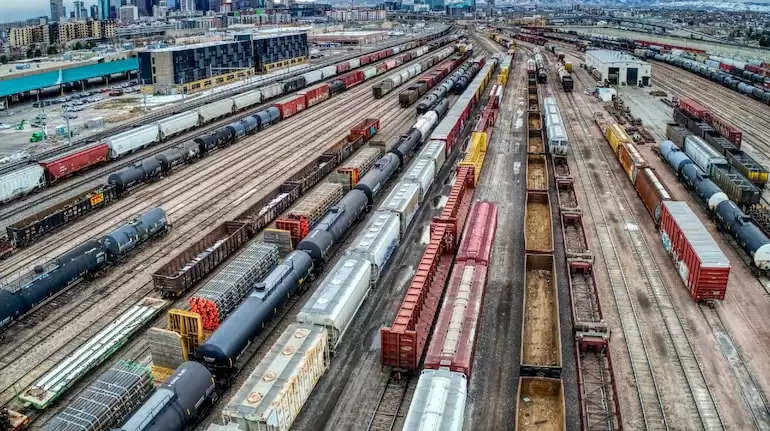The Cabinet approves a 1.5% reduction in the cost of railroad land licences and a 35-year maximum lease.

Anurag Thakur, the minister of information and broadcasting, said on September 7 that the Union Cabinet had approved the policy on long-term leasing of property owned by Indian Railways and has reduced the land licence costs from 6 percent to 1.5 percent. Additionally, the lease term was extended from five to 35 years.
The eagerly anticipated revision to the Railway Land Policy will be approved by the Cabinet, which would facilitate Container Corporation of India's (Concor) strategic disposal and increase its appeal to private investors. The change complies with the NITI Aayog's advice to maintain the rate for leasing railroad land for containers below 3 percent.
The proposed modifications will make it possible for Concor to be privatised since they will enable strategic buyers to lease land from railways for far less money over a longer period of time. One of the main recommendations made by the Concor investment advisors was this.
The transfer of management control and the sale of the government's 30.8 percent stake in the business were both approved by the Cabinet in November 2019.
The government outlined the advantages of the programme, claiming that it will lower industry logistics costs and boost the modal share of railways in freight transportation. The revamped land policy, according to the government, will increase railroad revenue and generate 1.2 lakh new jobs.
The new amendment also gives existing firms that use railway land for cargo terminals the choice to migrate to the new policy regime via a transparent and open bidding process.
The amendment will benefit the implementation of the PM Gati Shakti framework and assist the government in building 300 cargo ports across India in the ensuing five years.
It is anticipated that the modifications made under the new policy, which will go into effect in the following 90 days, will boost rail's modal share in freight transportation and lower the nation's total logistic expenses.
.png)